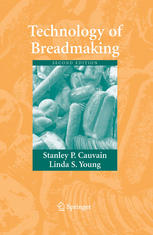

Most ebook files are in PDF format, so you can easily read them using various software such as Foxit Reader or directly on the Google Chrome browser.
Some ebook files are released by publishers in other formats such as .awz, .mobi, .epub, .fb2, etc. You may need to install specific software to read these formats on mobile/PC, such as Calibre.
Please read the tutorial at this link: https://ebookbell.com/faq
We offer FREE conversion to the popular formats you request; however, this may take some time. Therefore, right after payment, please email us, and we will try to provide the service as quickly as possible.
For some exceptional file formats or broken links (if any), please refrain from opening any disputes. Instead, email us first, and we will try to assist within a maximum of 6 hours.
EbookBell Team

0.0
0 reviewsTo study breadmaking is to realize that, like many other food processes, it is constantly changing as processing methodologies become increasingly more sophisticated, yet at the same time we realize that we are dealing with a foodstuff, the forms of which are very traditional. New ideas and raw materials are constantly being presented to bakers from wheat breeders, millers and ingredient and equipment suppliers for their evaluation. In addition there are on-going changes in legislation and consumer demands. To meet such pressures bakers must be able to better integrate their key raw material, wheat flour, with other ingredients and processing methods to deliver bread of the appropriate quality.
Technology of Breadmaking, Second Edition, sets out to identify and present the new knowledge that has become available in last 10 years, as well as update information. Like the first edition, it provides a useful tool to help bakers, scientists and technologists to cope with those changes.
About the Authors
Stanley P. Cauvain is the Director and Vice President of Research and Development activities at BakeTran.
Linda S. Young is a Director and Vice President of Knowledge Systemization and Training at BakeTran.